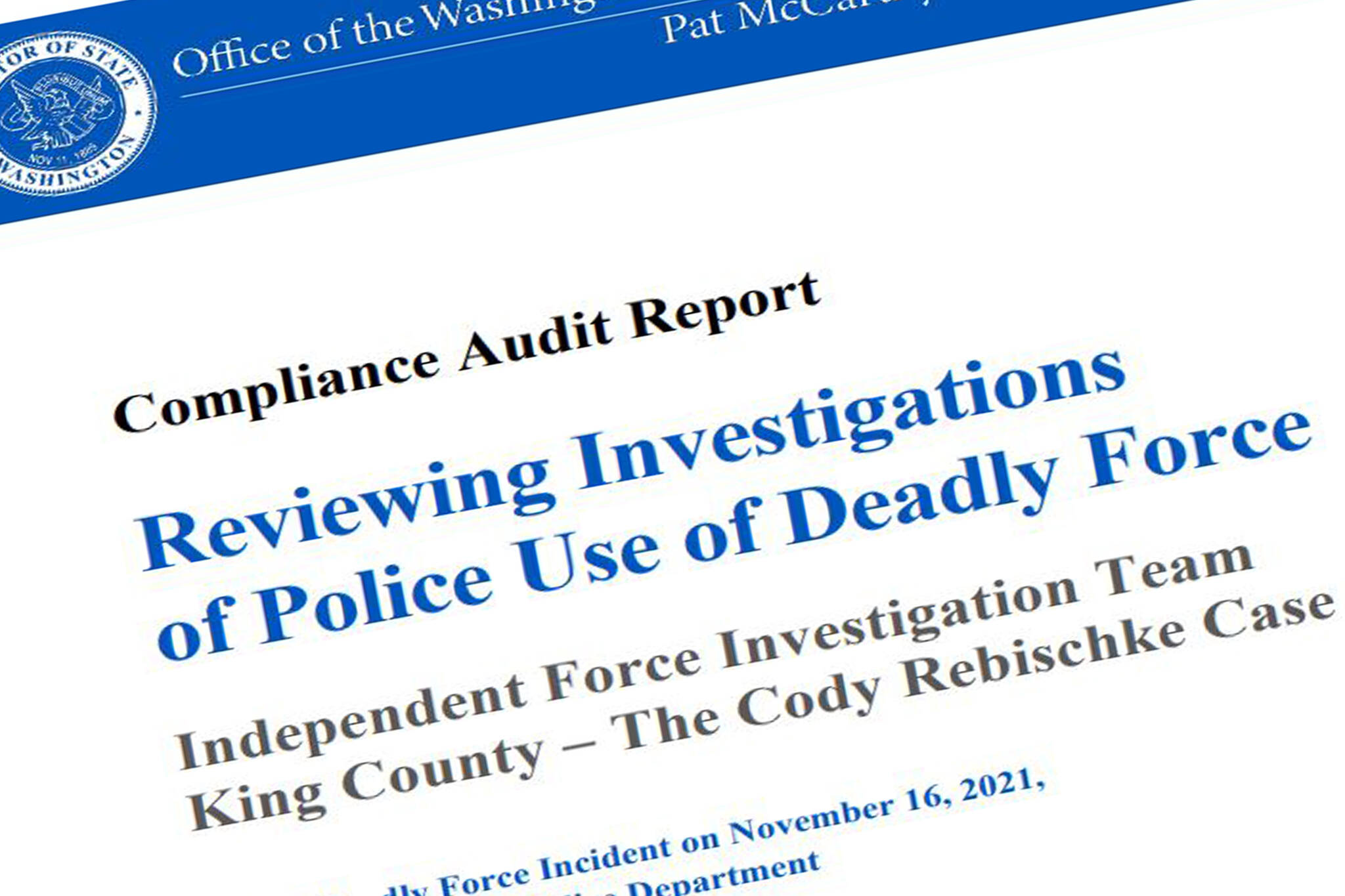A team of independent investigators complied with most state laws while investigating the death of a man killed by a Snoqualmie police officer, according to a report released last week.
In its 24-page compliance audit, the state Auditor’s Office found the Independent Force Investigation Team – King County (IFIT) only committed minor infractions when it investigated Officer James Aguirre’s fatal shooting of 33-year-old Cody Rebischke.
Aguirre shot Rebischke in North Bend on Nov. 16, 2021, following an alleged altercation. The incident was the subject of two-month-long investigation of IFIT – King County, a multi-agency team of investigators comprised of King County’s 13 law enforcement bodies.
IFIT’s investigation and state audit are requirements under I-940, a police-accountability initiative approved by state voters in 2018 and later adopted by state legislators. Among other things, I-940 requires an independent team of detectives and crime scene experts to investigate all officer-involved shootings that result in death or serious injury.
Those investigations are then subject to an inquiry from the state Auditor’s Office, which determines if they comply with state laws for independence, transparency and credibility. Audits do not weigh in on the use-of-force itself or if it was justified.
Requirements under I-940 are relatively new for investigators, said Michael Huynh, a program manager with the state auditor’s office, who noted the office has completed 14 audits under the new laws.
The Snoqualmie case was King County’s first investigation under the new laws, he said. Huynh said IFIT – King County did a “pretty good job documenting everything” in its investigation of Aguirre.
“Their non-compliance issues were fairly minor compared to other audits we’ve done so far,” he said.
Findings of non-compliance
Under the law, investigation teams are required to have two community representatives with credibility and ties to the community where the shooting took place. Reps are there to provide input and transparency. IFIT’s investigation of Snoqualmie only had one representative, auditors found.
Additionally, IFIT investigators are required to give community representatives, and the victim’s family, advance notice of any public statements or press releases. Auditors found reps did not receive notice for at least two releases and Rebischke’s family did not receive notice for at least one.
Auditors also found the single community rep did not complete a conflict of interest assessment tool to disclose any connections to the involved officer. However, the assessment was completed by all involved law enforcement members.
Auditors also suggested the team make its process of selecting community representatives transparent, as required by law.
Additionally, IFIT did not have records for the auditor to independently verify members of the investigation team were free of any personal or professional histories of misconduct. During IFIT-King County’s investigation, the commander said when members joined the team, they relied on the discretion of the department-head of the officer’s member agency to determine if they were free of misconduct.
Huynh said it’s a requirement that those involved in the investigation are free of misconduct or bias. Yet, the Criminal Justice Training Commission, which wrote those rules, does not outline a process to determine how someone is in violation, nor do the rules provide clarity on what exactly constitutes a violation, he said.
“This requirement has many issues,” Huynh said. “CJTC, they don’t really have a defined process on how investigation teams should figure out if the investigators are free of bias and misconduct. A lot of them have relied on the chiefs and sheriffs the investigators belong to.”
Auditors also found the investigation team did not comply with requirements that candidates interviewed for investigator positions all receive the same set of questions.
What happens next
Huynh said the auditor’s office hopes to release a summary report later this year that highlights the most common non-compliance trends and issues with requirements across the state.
Audits themselves are only reports and it’s up to elected leaders to make changes, said Adam Wilson, a spokesperson for the auditor’s office. However, next time they audit King County’s IFIT team, they will follow up on previous compliance issues, he said.


